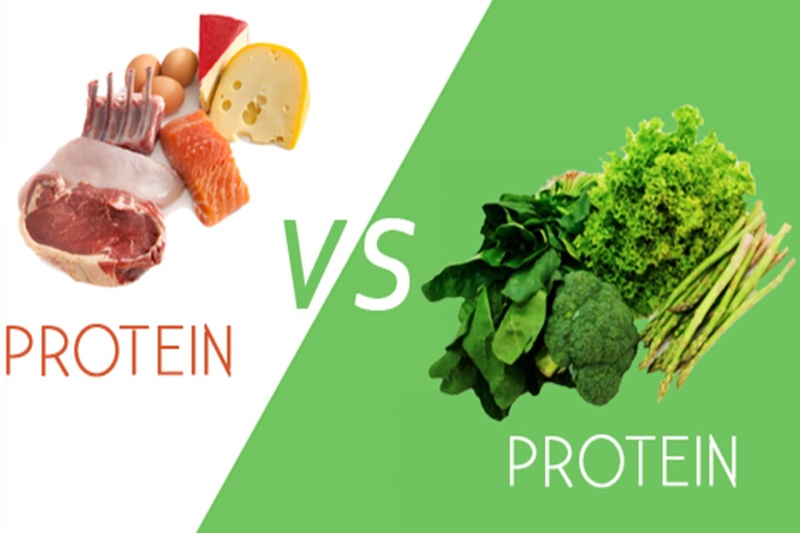Although protein is the building block of the body, do you think plant or animal protein is more vital for you? Continue reading to learn more.
The first thing that comes to mind when you think about protein is eggs. Indeed, it is a rich source of protein, but there are other options as well! Foods derived from both plants and animals can include protein. The age-old conflict that persists today is between animal and plant proteins. While certain plant-based diets are classified as incomplete, animal proteins are typically thought of as complete proteins since they include all essential amino acids. Having said that, you must evaluate the two protein sources to find out which is ideal for your general health.
Why is protein necessary for you?
Protein is essential for many body processes since it forms the basis of tissues, muscles, organs, hormones, enzymes, and immunity. It promotes metabolic processes, helps repair and grow muscle mass, and leaves you feeling full. Your immune system may be weakened, your muscles may become weak, and your wounds may heal more slowly if you don’t get enough protein. The recommended dietary allowance (RDA) for protein is 0.8 grams of protein per kilogram of body weight, according to Harvard Health Publishing.
What advantages does animal protein offer?
Physician Dr. Manish Itolikar states that “animal protein sources, such as lean meats, fish, eggs, and dairy foods, tend to be good sources of complete protein compared to plant-based protein sources.” They are abundant in all essential amino acids, which are necessary for immune system support, tissue growth and repair, and hormone synthesis. Furthermore, essential minerals found in animal proteins include vitamin B12, iron, zinc, and omega-3 fatty acids. These nutrients are critical for the functioning of the brain, the generation of red blood cells, the immune system, and general vigor.
Additionally, by increasing fullness and decreasing hunger, animal protein can support weight control by limiting caloric intake and averting overeating. All things considered, eating animal protein in moderation can boost a number of body processes.
What advantages does plant protein offer?
Fruits, vegetables, cereals, nuts, seeds, beans, lentils, and other plant-based proteins are frequently high in fiber, which is believed to aid in better digestion, satiety, and blood sugar regulation. According to Dr. Itolikar, plant proteins are heart-healthy choices that can help lessen the risk of cardiovascular disorders because they are generally lower in saturated fats and cholesterol than animal protein sources.
Which is a superior source of protein, plant or animal?
The composition, source, and impacts of plant and animal proteins on human health and the environment are different. Because animal protein, which can be found in meat, dairy products, and eggs, includes all required amino acids as well as vital elements like vitamin B12, it’s frequently referred to as a complete protein. But it also has increased cholesterol and saturated fat content, which aggravates cardiovascular problems.
Legumes, grains, nuts, and seeds, on the other hand, are sources of plant protein and provide a range of nutrients, such as fiber, vitamins, and minerals. Even though some plant protein sources could be deficient in a particular amino acid, whole proteins can be made by mixing various plant meals. Diets high in plants are associated with a decreased risk of diabetes, heart disease, and some types of cancer.
In summary, you can consume protein derived from both plants and animals. However, consume animal protein sparingly and in moderation. Mix and match different plant foods to make sure you are obtaining the recommended daily amount of protein from plant sources. The greatest method to satisfy your daily protein needs and include both types of proteins in your diet is this.
Topics #Animal #Plant #protein










